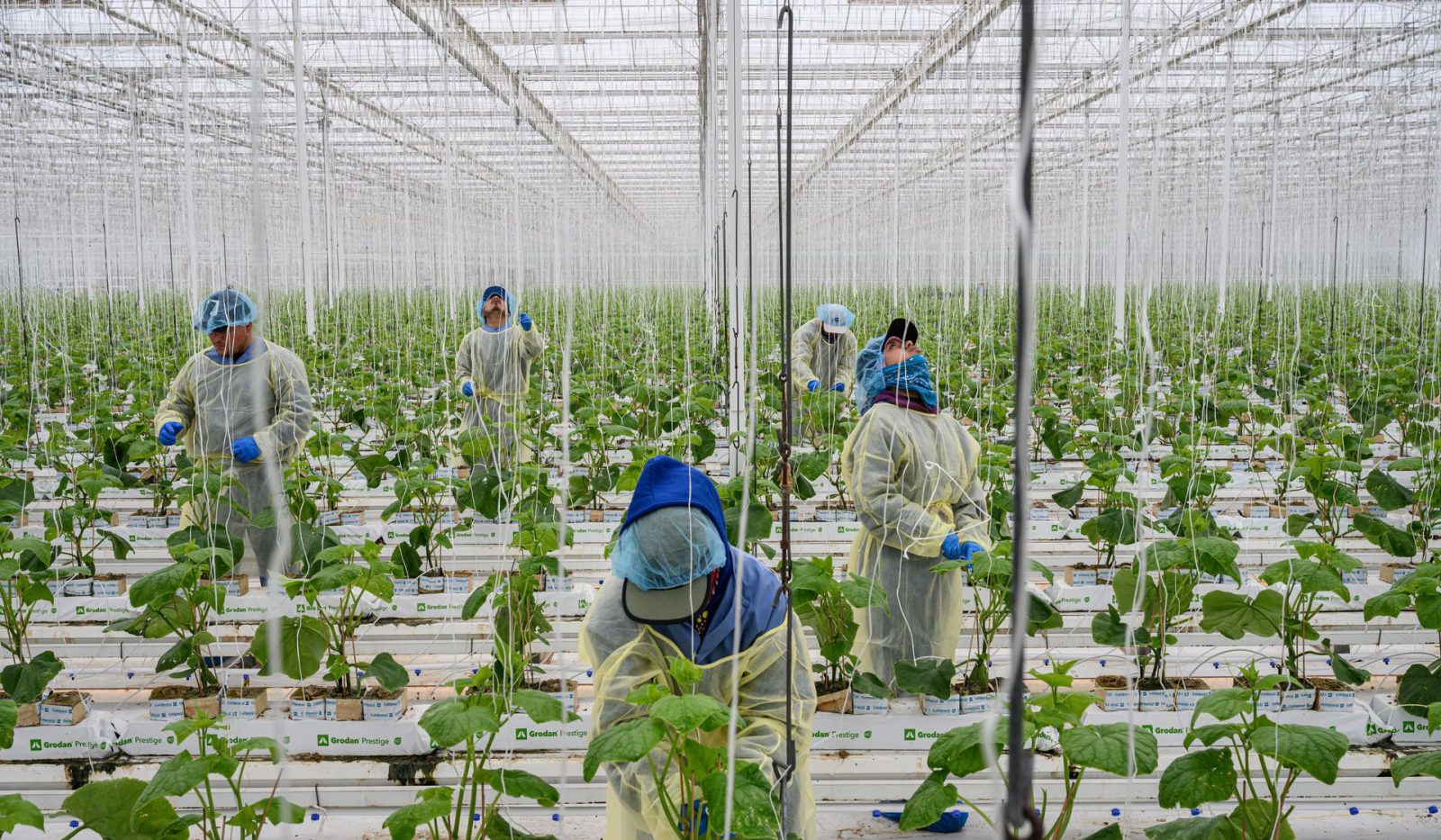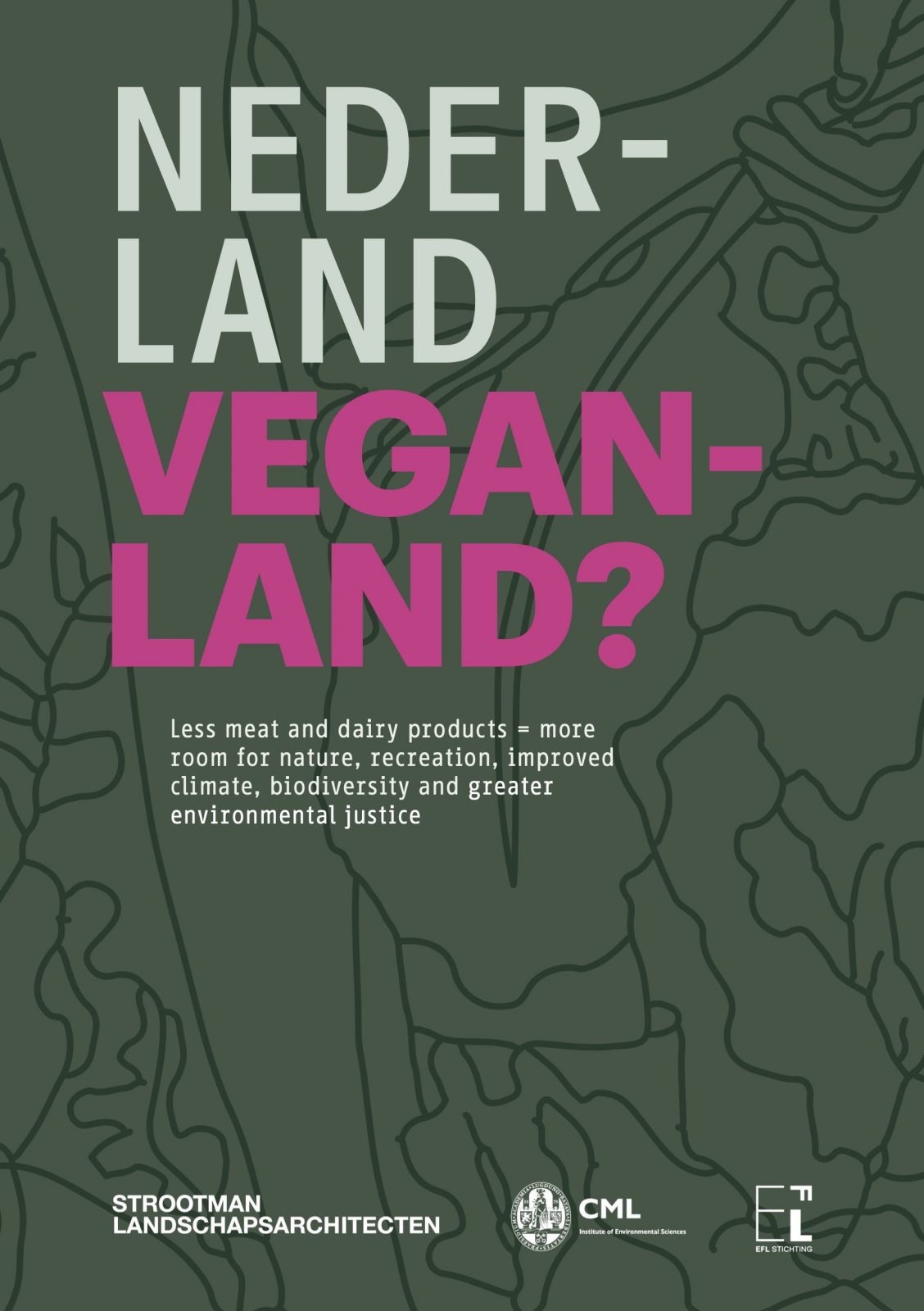Veganland - Food for Thought
An evening with photographer Kadir van Lohuizen and landscape architect Berno Strootman about the global food crisis and the transition towards a vegan society as a possible way out. Taking place on Tuesday 20 May, 19:00 - 21:00 (doors open at 18:30)

Tickets available for 5 euro.
Veganland - Food for Thought
On May 20th, we are organising an evening with photographer Kadir van Lohuizen and landscape architect Berno Strootman, exploring the global food crisis and the transition toward a vegan society as a possible way forward.
On average, food on Dutch supermarket shelves travels about 30,000 kilometers before it ends up on our plates—that's the equivalent of a round trip to Australia. At the same time, 80% of food produced in the Netherlands is exported, while the high concentration of livestock and intensive food production causes odor nuisance, air pollution, eutrophication, greenhouse gas emissions, soil subsidence, degradation, animal welfare issues, and more.
On this evening, we’ll explore the hidden world of our food production and the impact on the planet. Together with Kadir van Lohuizen, we’ll travel across the globe through his project Food for Thought. From the Netherlands to Kenya, the US, the UAE, and China, he documented food production systems around the world. This project resulted in a four-part TV series, multiple exhibitions and a book - partly conceived as a food atlas - with striking images, facts, figures, and unique infographics created in collaboration with experts.
We’ll then continue the evening with a lecture by landscape architect Berno Strootman, who will present his design-based research project ‘Netherlands Veganland’. The project explores a future in which everyone in the Netherlands follows a plant-based diet and the import of animal feed ceases. What would this mean for our country?
Supported by the EFL Foundation as part of its call on climate justice, this study shows that the Netherlands could sustainably produce a healthy, fully plant-based diet for 20 million people within its own borders, using nature-inclusive methods. Even then, there would still be space for other societal ambitions—such as meeting biodiversity targets, improving landscape quality, accommodating population growth, and greening cities.
The result? More beautiful landscapes, cleaner air, water, and soil. This transition would deliver real gains for climate justice, animal welfare, public health, and the economy. In short, a shift to plant-based eating doesn’t just feed people—it creates space for a fairer, greener, and more prosperous future.
Tuesday 20 May 2025
18:30 - 19:00 Doors open
19:00 - 19:15 Welcome by Independent School for the City
19:15 - 19:50 Food for Thought - Presentation by Kadir van Lohuizen
19:50 - 20:25 Netherland Veganland, presentation by Berno Strootman
20:25 - 21:00 Questions and conversation
21:00 Drinks at the bar

About Kadir van Lohuizen
Kadir van Lohuizen is a Dutch photojournalist known for in-depth visual storytelling on global issues. Starting in 1988 with the Intifada, he later documented African conflicts and South Africa’s transition from apartheid. His long-term projects include Rivers, covering life along the world’s major rivers; Diamond Matters, tracing the diamond trade; and Via PanAm, exploring migration in the Americas. He also tackled climate change in Where Will We Go, and global waste in Wasteland, earning a World Press Photo Prize. In 2018, he co-won the Prix Carmignac for Arctic climate reporting. His recent project, Food for Thought, investigates the Dutch food industry’s global impact. Kadir’s work blends photography, video, and multimedia, and has been widely exhibited and published. He remains a key voice in environmental and human rights storytelling.
About Berno Strootman
Berno Strootman is landscape architect and founder of the Amsterdam-based landscape practice Strootman Landschapsarchitecten, of which he is still director. With his office of around 20 people he works on a wide range of assignments, from design research, vision formation and strategy to concrete development plans, for both rural and urban areas and on a national, regional and local scale. He is also a teacher, a regular member of juries of design competitions, supervisor, and member of advisory committees. He won several prizes and awards with his team. From 2016 to 2020, Berno was Government Advisor for the Physical Environment, where he provided solicited and unsolicited advice to the National Government on spatial quality in relation to today's urgent themes such as climate adaptation, energy transition, the forest strategy, increasing the biodiversity, soil subsidence and the sustainability of agriculture.